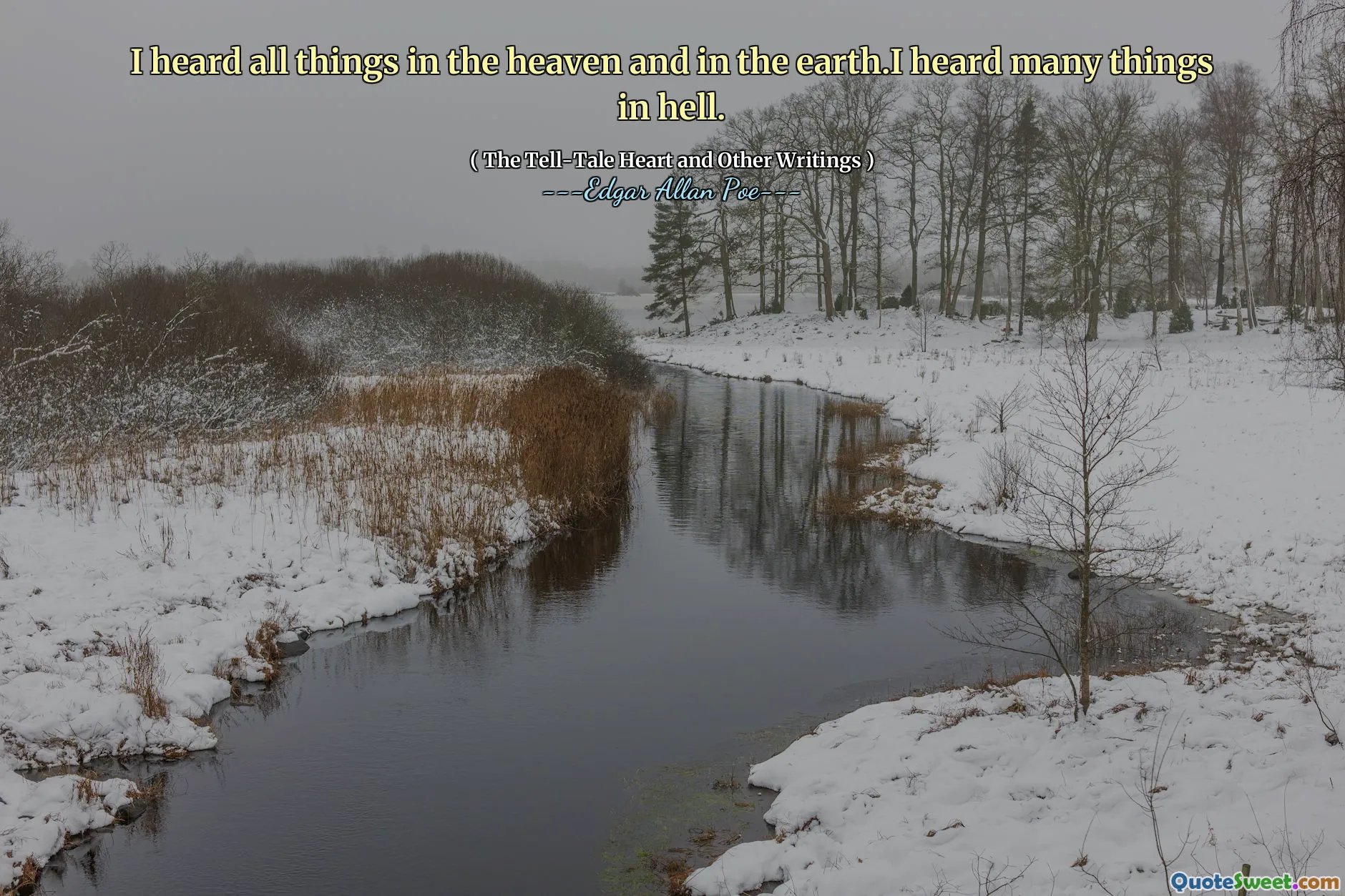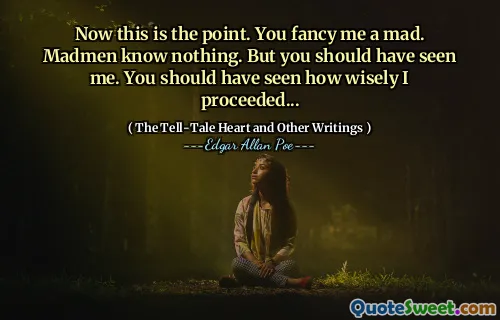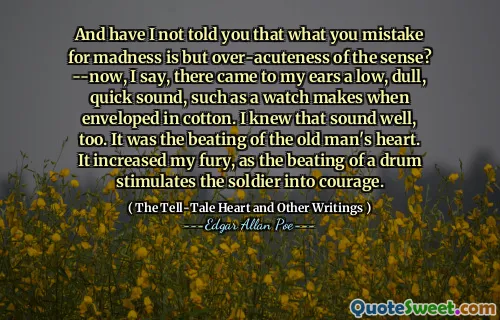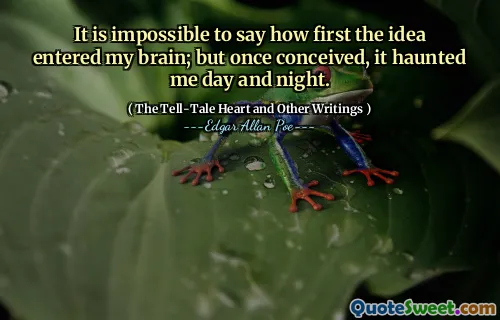
I heard all things in the heaven and in the earth.I heard many things in hell.
In Edgar Allan Poe's "The Tell-Tale Heart and Other Writings," the quote reflects the narrator's heightened sensitivity and acute awareness of his surroundings. It suggests a profound ability to perceive deep truths about life, existence, and the human psyche, indicating a mind that is both observant and tormented. This theme of heightened perception is central to the story, as the narrator grapples with overwhelming emotions and paranoia.
The mention of "heaven" and "hell" signifies a deep introspection and exploration of morality and madness. The narrator's experience blurs the lines between sanity and insanity, revealing how different states of awareness lead to varied perceptions of reality. Overall, this quote encapsulates the essence of Poe's exploration of the dark aspects of the human mind and the complexities of perception.











